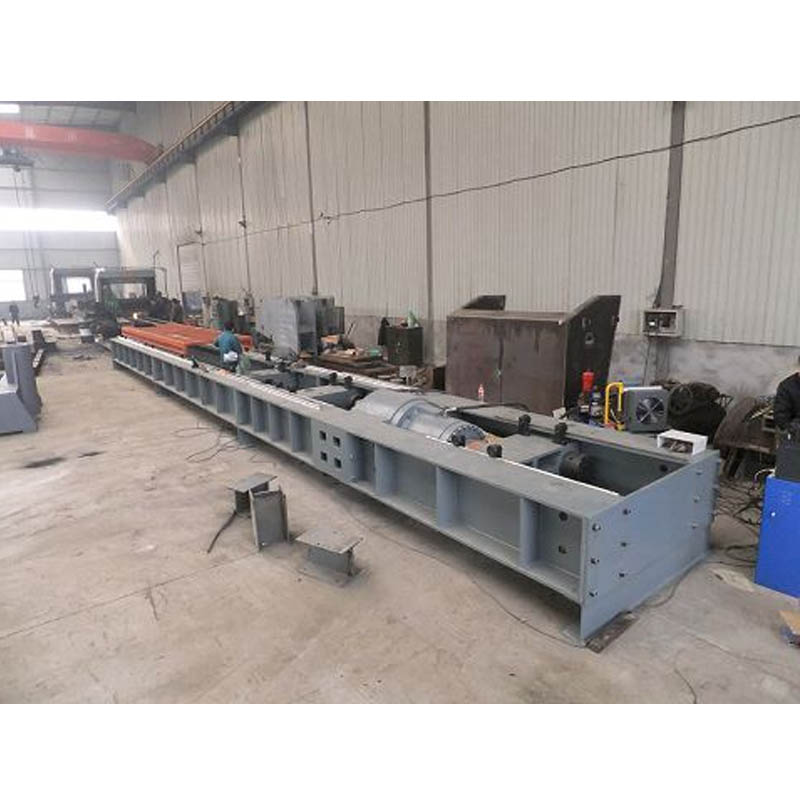Leading Manufacturer of High-Precision Metal Tensile Testing Equipment for Quality Assurance Solutions
The Importance of Metal Tensile Testers in Material Science
In the realm of material science and engineering, understanding the mechanical properties of metals is crucial for numerous applications, ranging from construction to aerospace. One of the most significant methods for assessing the mechanical properties of metals is through tensile testing. This process involves measuring the material's response to a controlled, applied stress, and it is where metal tensile testers play an essential role.
What is a Metal Tensile Tester?
A metal tensile tester is an apparatus used to evaluate the tensile strength, yield strength, elongation, and other mechanical properties of metal materials. These testers apply a uniaxial force to a sample until failure, allowing for the analysis of how the material behaves under tension. The data collected from these tests is invaluable in ensuring that metals can withstand the stresses they will encounter in real-world applications.
Key Features of Metal Tensile Testers
Modern metal tensile testers are equipped with advanced technology that ensures accuracy, reliability, and ease of use. Key features often found in these machines include
1. High Precision Load Cells These are crucial for accurately measuring the force applied to the metal specimen, allowing for precise calculations of stress and strain.
2. Digital Displays and Software Integration Contemporary testers often come with digital interfaces that display real-time data during testing. Many manufacturers also provide sophisticated software that can analyze data, generate reports, and visualize results graphically.
3. Environmental Controls Some metal tensile testers offer environmental chamber options, enabling tests at various temperatures and humidity levels. This feature is particularly important for materials that behave differently under different environmental conditions.
4. User-Friendly Operation With automated features, such as self-calibration and easy sample loading mechanisms, modern testers facilitate a seamless user experience, allowing researchers and engineers to focus on data interpretation rather than machine operation.
Applications of Metal Tensile Testers
Metal tensile testers are utilized across various industries
metal tensile tester manufacturer

- Construction In construction, the strength and ductility of metals like steel are critical for safety and durability
. Tensile testing ensures that materials will perform as expected under load.- Aerospace The aerospace sector demands extremely reliable materials. Tensile testing is essential in the selection and certification of metals used in aircraft components, ensuring they can withstand extreme stresses.
- Manufacturing Manufacturers use tensile testing to monitor quality and consistency in metal fabrication. By regularly testing production batches, companies can maintain high standards and prevent failures in end products.
- Research and Development In R&D settings, tensile testers facilitate the development of new metal alloys by providing crucial data that informs material design and manufacturing processes.
Choosing a Metal Tensile Tester Manufacturer
When selecting a manufacturer for metal tensile testers, several factors should be considered
- Quality and Reliability Look for manufacturers with a reputation for producing high-quality, reliable equipment.
- Customer Support and Training A good manufacturer will provide comprehensive support, including installation, training, and maintenance services.
- Customization Options Depending on specific testing requirements, some manufacturers offer customizable solutions to cater to unique industry needs.
- Compliance Ensure that the manufacturer complies with international testing standards, such as ASTM and ISO, to guarantee the accuracy and relevance of test results.
Conclusion
Metal tensile testers are indispensable tools in ensuring the performance and safety of metal materials across various industries. By investing in high-quality testing equipment from reputable manufacturers, organizations can significantly enhance their material assessments, resulting in improved product safety and performance. As technology advances, the capabilities of these testers continue to evolve, providing even deeper insights into the mechanical behavior of metals, driving innovation in material science and engineering.
-
Why the Conductor Resistance Constant Temperature Measurement Machine Redefines Precision
NewsJun.20,2025
-
Reliable Testing Starts Here: Why the High Insulation Resistance Measuring Instrument Is a Must-Have
NewsJun.20,2025
-
Flexible Cable Flexing Test Equipment: The Precision Standard for Cable Durability and Performance Testing
NewsJun.20,2025
-
Digital Measurement Projector: Precision Visualization for Modern Manufacturing
NewsJun.20,2025
-
Computer Control Electronic Tensile Tester: Precision and Power for the Modern Metal Industry
NewsJun.20,2025
-
Cable Spark Tester: Your Ultimate Insulation Assurance for Wire and Cable Testing
NewsJun.20,2025
 Copyright © 2025 Hebei Fangyuan Instrument & Equipment Co.,Ltd. All Rights Reserved. Sitemap | Privacy Policy
Copyright © 2025 Hebei Fangyuan Instrument & Equipment Co.,Ltd. All Rights Reserved. Sitemap | Privacy Policy
